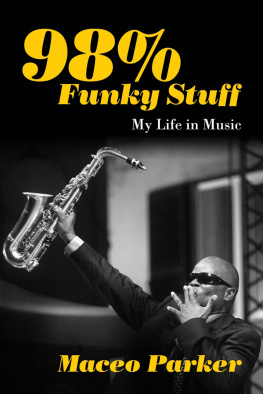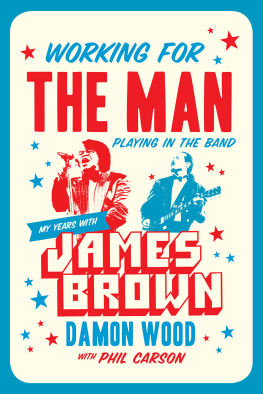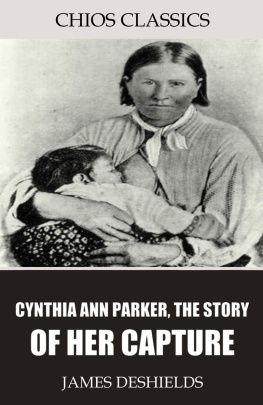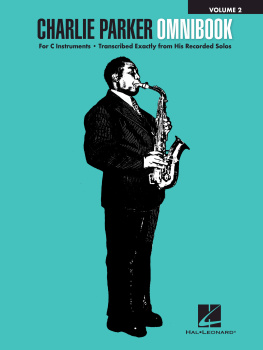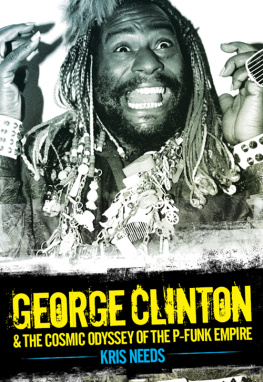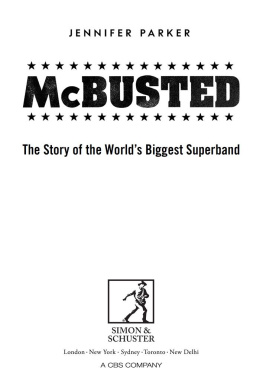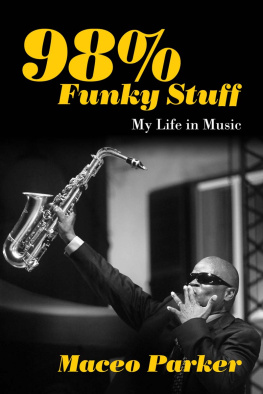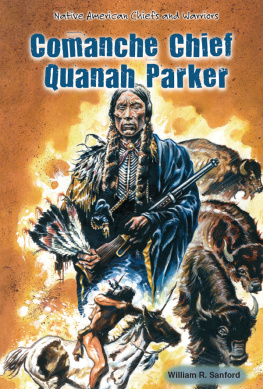
Copyright 2013 by Maceo Parker
All rights reserved
First edition
Published by Chicago Review Press, Incorporated
814 North Franklin Street
Chicago, Illinois 60610
ISBN 978-1-61374-346-1
Interior design: Perfec Type, Nashville, TN
Library of Congress Cataloging-in-Publication Data
Parker, Maceo.
98% funky stuff : my life in music / Maceo Parker. 1st ed.
p. cm.
Includes index.
ISBN 978-1-61374-346-1 (hardcover)
1. Parker, Maceo. 2. SaxophonistsUnited StatesBiography. I. Title. II. Title: Ninety-eight percent funky stuff.
ML419.P367A3 2013
788.7164092dc23
[B]
2012037923
Printed in the United States of America
5 4 3 2 1
Contents
Preface
Youre Gonna Know Me
I ts the fall of 1963, and Im nineteen years old. Im standing out back of the Coliseum in Greensboro, North Carolina, during intermission, trying to catch a glimpse of my idol, Ray Charles. Ive just seen him play an incredible set with his band, and Im certain theyve come out back for some air. I walk around searching the faces in the throng of people milling about, looking for anyone in the bandDavid Fathead Newman, Philip Guilbeau, Marcus Belgrave, Edgar Willis, Bruno Carr. I would recognize any one of them instantly, but all I see are strangers. Im not entirely sure what Ill do when I find them, but I feel an irresistible pull to them. I want to see them. I want to see Ray.
Out of the corner of my eye I notice the flare of a lighter. Someone is lighting a cigarette. I turn my head and instantly know who it is. Leaned up against a pole is Rays alto player, Hank Crawford. Hes the absolute epitome of cool in his leather jacket and matching boots. Its nearly midnight, but he still has his sunglasses on. I stand in the shadows for what seems like an eternity, watching as he takes long drags of his cigarette, not sure if I should approach him or not. I wouldnt know what to say if I did, but Ive been enamored with his playing ever since I heard Whatd I Say. I love his sound, his phrasing.
Its the fall of my junior year in college, and Im feeling an increasing pull away from school, away from the life of a music teacher and toward the kind of life that Hank leads. I want to be out on the road in an incredible band, playing packed houses every night. I know deep down that the life of a teacher is not for me. Theres something else inside thats dying to get out.
The back door of the Coliseum opens, and the rest of the band spills out. They gather around, laughing and talking, occasionally speaking to some of the other people whove been waiting to see them.
Then Ray Charles himself emerges. Im completely awestruck. Im close enough to walk over and touch him. I want to say something, but I know anything I say will sound like the ramblings of just another star-struck fan. My admiration for this man and his music goes so much deeper than that. When I introduce myself to Hank Crawford, David Newman, and especially Ray Charles, I dont want to come off that way. I want it to be as a fellow musician and, more important, a musician they know of.
In that moment, I realize that things have to happen this way. I decide right then and there that I will make these men know the name Maceo Parker. I dont know how Im going to do it, and I dont know how long its going to take. But its going to happen.
Then the words that will become a solemn promise to myselfthe words that will forever shape the course of my lifecome into my head and escape from my lips. I say them out loud, and although no one really hears, I know I mean every word.
One of these days youre all gonna know me.

1
Teaching Little Fingers to Play
O ftentimes in interviews, reporters ask me for my earliest memory. To try to reach back that far in your mind is an interesting exercise (and I found myself doing it often as I wrote this book). If I close my eyes, my earliest memories are mostly of feelingsimpressions, really. And the earliest and most indelible feeling is simply of love.
I was born Maceo Parker Junior on Valentines Day, 1943, in a tiny row house at 121 Railroad Street in Kinston, North Carolina, just yards from the tracks that divided the black and white sections of the town. Perhaps my being born on the day that celebrates love was a good omen. Love and warmth filled our little house, a busy place with people constantly going in and out. I remember so many different faces. Two small ones soon became very familiarthat of my older brother, Kellis, who was born a year before me, and that of my younger brother, Melvin, who followed me in 1944. Before I knew the meaning of brother, I felt a bond between us. It wasnt until I was around five, though, that I made the connection that we were more than just buddies. We were family.
My world consisted of our tiny house and the street that ran behind it, which was bordered by houses just like ours on either side. When my mother and father were around, I felt secure. My paternal grandmother, Eva, also lived with us for a time. Even my parents just called her Grandma. Throughout the day, she would call on my brothers and me to help her with little things, like adjusting her pillows or rubbing her feet. She died when I was very young.
We had a large family in Kinston, and holidays were always important times at our house. One of the earliest Christmases I can recall took place at that Railroad Street house when I was about four or five. I saw a picture of Santa Claus in an advertisement and discovered that he rode on a sleigh pulled by eight tiny reindeer. He was not, as I had previously believed, the nice old man who drove through the neighborhood at Christmastime and tossed candy from the window of his pickup truck. That Christmas morning, my brothers and I ran out to the tree like all little boys do, only to find there were no presents underneath. My mother explained that Santa Claus just didnt come for some reason, but she said we still had a lot to be thankful for. I felt a little sad but tried not to show it. When we got to my grandparents house that afternoon for supper, however, all of our presents were there waiting for us. My mother liked to play little practical jokes like that from time to time, a trait that would eventually rub off on my brother Melvin.
My brothers and I, being so close in age, were an especially tight-knit group. Like most young boys, we were proud of our gender and regarded girls, like our older cousin Eva Delores, as pests. Eva was named for Grandma and came to live with us for a time. She quickly became the Parker brothers nemesis, partly because she was a girl, but mostly because she would tease us relentlessly. Back then, my brothers and I shared a single bed, which wed occasionally wet. We would clean ourselves really well, and honestly it was almost impossible to tell who had actually done the deed. Consequently, each of us would get a spanking for it the next morning. (My parents reasoned that this was the only way to be firm and fair.) For obvious reasons, Eva found this incredibly amusing and would laugh herself silly when it happened.
One day, Melvin had enough of her and talked Kellis and I into getting even. That afternoon, the three of us crept into her room, pulled the sheets back from her bed, and took turns peeing on her mattress. In the morning, she was the one getting a paddling, and we were the ones laughing. We still tease her about it to this day.
Next page
